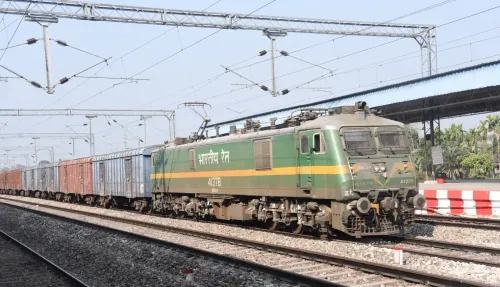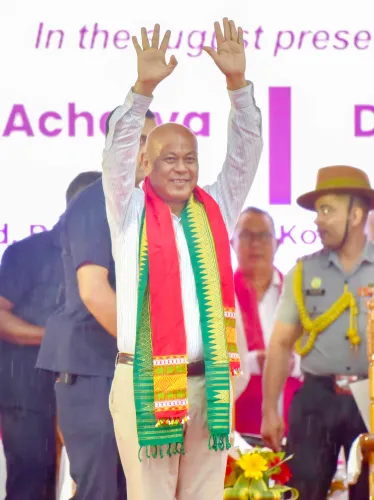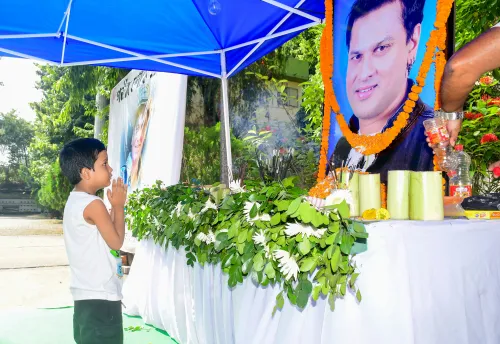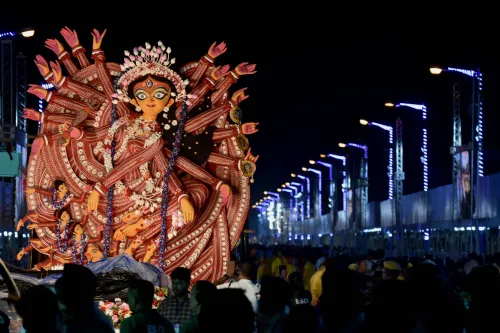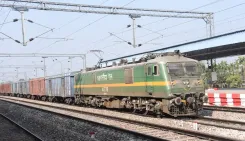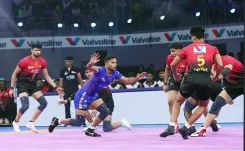Is Delhi Studying the Dharavi Model for Slum Redevelopment?
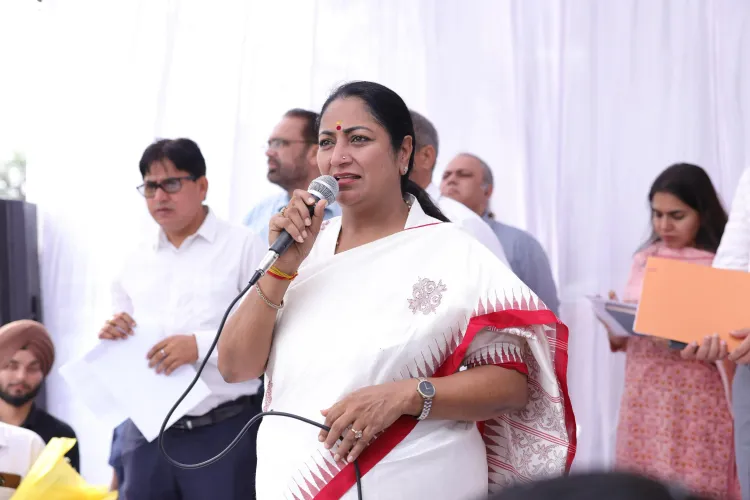
Synopsis
Key Takeaways
- Delhi is exploring the Dharavi model for effective slum redevelopment.
- CM Gupta assures protection for long-time slum residents.
- Recent demolitions are based on court orders.
- The previous government faced criticism for inadequate rehabilitation efforts.
- Approximately 1.5 million people live in slum clusters across the city.
New Delhi, June 20 (NationPress) Describing court-ordered demolitions as part of a systematic approach to settle slum residents, Delhi's Chief Minister Rekha Gupta stated on Friday that the state government is examining the Dharavi redevelopment model from Mumbai to enhance the revival of the national capital.
While addressing reporters at an event in Shalimar Bagh, CM Gupta emphasized that Delhi's redevelopment will be conducted in a structured manner.
"We will ensure that nothing happens to the slum dwellers of Delhi who have been long-standing residents here," she remarked.
She elaborated on the necessity of demolitions in select areas, clarifying that the government does not aim to demolish homes without justification, yet in some instances, dismantling structures becomes essential for the proper settlement of residents.
CM Gupta criticized the former Aam Aadmi Party (AAP) government for neglecting the rehabilitation of slum dwellers.
"Slum dwellers were not relocated to the 50,000 flats constructed for their rehabilitation. These units remained unoccupied even after residents paid for alternative housing," she stated.
The issue of slum demolitions in the national capital has ignited a political conflict between the BJP and the AAP, with the latter accusing CM Gupta of failing to uphold her promise to protect slums from demolitions.
In response, the AAP has declared a city-wide protest starting June 29 against the demolitions, accusing the BJP of violating its commitment of 'Jahan Jhuggi Wahan Makan'.
CM Gupta defended the demolition actions by stating that all measures were undertaken based on court directives.
"No one can defy court orders," she affirmed.
Recently, demolitions have occurred in Okhla, Batla House, Jangpura, Kalkaji, Wazirpur, Jailorwala Bagh in Ashok Vihar, Gokalpuri on Loni Road, and Azadpur in Model Town.
The Delhi Development Authority evaluated slum rehabilitation models from Mumbai, Ahmedabad, and Surat in 2017, approving an in-situ redevelopment of jhuggi jhopri (JJ) clusters under the Public-Private Partnership (PPP) framework, in alignment with the Pradhan Mantri Awas Yojana-Urban (PMAY) guidelines and the Master Plan of Delhi-2021.
Eligibility criteria for identifying beneficiaries of JJ clusters strictly follow the Delhi Urban Shelter Improvement Board (DUSIB) policy established on December 11, 2017.
According to DUSIB, there are approximately 675 slum clusters in Delhi, housing nearly 1.5 million individuals.

